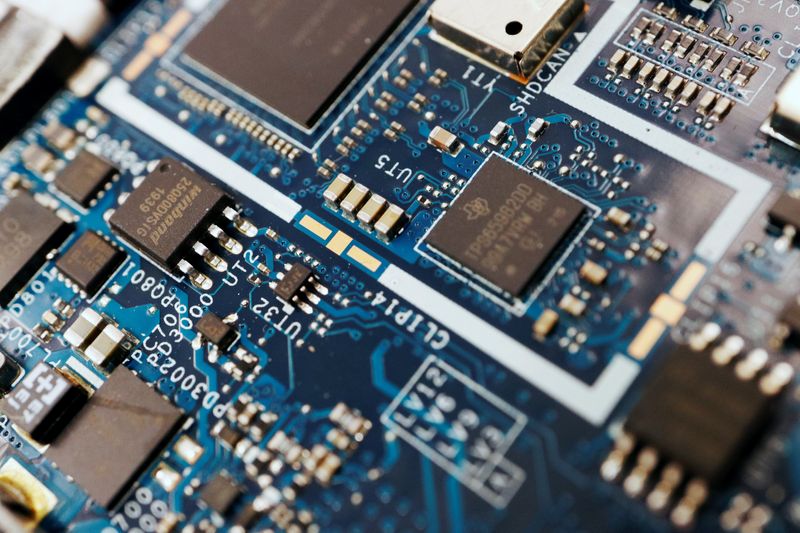Investing.com– The U.S. will implement its third major crackdown on China’s semiconductor industry, targeting 140 entities with new export restrictions, Reuters reported on Monday, citing sources familiar to the matter.
The measures aim to restrict China’s access to advanced chips and equipment vital for artificial intelligence and other high-tech applications, reflecting ongoing U.S. efforts to curb Beijing’s chipmaking capabilities.
The latest measures reportedly include export bans on Chinese chip equipment firms like NAURA Technology Group Co Ltd (SZ:), Piotech Inc (SS:), and SiCarrier Technology. Additionally, shipments of advanced memory chips, high-bandwidth memory (HBM) chips, and specialized chipmaking tools to China will face new restrictions, the report stated.
The tightened controls could impact key suppliers like Lam Research Corp (NASDAQ:), KLA Corporation (NASDAQ:), Applied Materials Inc (NASDAQ:), and non-U.S. firms such as ASM International NV (AS:), according to the report.
The Biden administration’s move marks its last major semiconductor-related policy before Donald Trump, known for his tough stance on China, assumes office in January. Trump’s administration is expected to maintain or expand these restrictions, focusing on national security concerns related to AI-driven military advancements in China.
The U.S. also is poised to place additional restrictions on Semiconductor Manufacturing International Corp (HK:) (SMIC), which is already added to the U.S. Entity List, limiting its ability to source American technology without special licenses, Reuters reported. SMIC is China’s biggest chipmaker by volume.
Chinese private equity firms Wise Road Capital and tech firm Wingtech Technology Co Ltd (SS:) will be added to the U.S. Entity List for the first time, the report stated.
The expanded rules also include updates to the foreign direct product rule, extending U.S. export controls to chipmaking equipment manufactured outside the U.S., including in countries like Malaysia and South Korea. However, Japan and the Netherlands are exempt, as their governments have implemented similar export restrictions.
This latest round of restrictions follows sweeping measures imposed in October 2022, which limited China’s access to advanced chips and manufacturing technology. While China has invested heavily in semiconductor self-sufficiency, it remains years behind global leaders like NVIDIA Corporation (NASDAQ:) and ASML in cutting-edge chip technologies.
One other rule in the U.S. package imposes restrictions on memory technology used in AI chips, specifically those classified as HBM 2 and higher. These chips are produced by companies such as South Korea’s Samsung Electronics (KS:) and SK Hynix Inc (KS:) as well as U.S.-based Micron Technology Inc (NASDAQ:). Industry analysts anticipate that Samsung Electronics will be the primary company affected by this particular restriction, the Reuters report mentioned.


